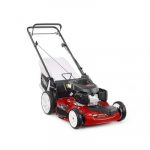We often look at fertilizer as being a beneficial addition to our lawn. It’s true, as it can certainly help to feed your lawn, and help it to grow tall and strong over the summer. However, if not used correctly, fertilizer can be quite harmful to your lawn.
To understand why, you have to first think about what exactly fertilizer is. It’s concentrated nutrients for your grass, in a simple delivery method. You might wonder how plant food can harm what it is meant to help. Think of how humans deal with food, and the ills it can cause – obesity, diabetes, allergies, high blood pressure, and illnesses. Too much food, or too much of certain foods, can cause problems.
The same goes for fertilizer. Essentially, there are three ways fertilizer can damage your lawn:
- Wrong type of fertilizer
- Wrong method of application
- Wrong time of application
In the first case, you need to make sure you are using the correct type of fertilizer for the type of grass you have, as well as the climate and conditions. Different grasses and soils will be high or low in certain nutrients. Using the wrong fertilizer could cause a further imbalance of nutrients, to the point of basically causing your grass to overdose.
Regarding the second way, a poor method of applications can cause fertilizer to be unevenly distributed. Having too much fertilizer in one spot can cause burns to your lawn, killing off grass. Uneven distribution will cause patchiness by providing some areas with the nutrients they need while starving other areas. Make sure that you apply the fertilizer thinly and evenly. If you are using a spreader, make sure you don’t let it sit in one spot where it can dump a concentrated load on the. In particular, be careful of areas where you may need to stop and turn the spreader.
In the third instance, there are a lot of things to consider when it comes to timing –
- Is there a drought? Don’t put down fertilizer, as it won’t be absorbed into the soil. Instead, it will sit on the grass and possibly damage it.
- Is it going to rain heavily? Don’t apply fertilizer, unless you want it to be flushed into the nearby streams as run-off.
- Is your grass still dormant? Don’t apply fertilizer, unless you want to feed the weeds in your lawn.
- Is a previous application of a slow-release product still in action? Don’t apply fertilizer, unless you want burns on your lawn.
Applying fertilizer can’t be kept to a tight schedule, because poor timing can be worse than skipping it altogether. It is easier to help along a lawn that hasn’t been over-fertilized than it is to try and help a lawn recover from being over-fertilized.
Knowing what can cause fertilizer to be harmful to your lawn instead of helpful is the key to proper fertilizer usage. By paying attention to these three ways fertilizer can damage your lawn, you can eliminate 95% of the problems that people tend to encounter with fertilizer. This isn’t just limited to chemical fertilizer, either – organic and natural fertilizers contain the same nutrients and ingredients, and can create the same sorts of problems if applied incorrectly.






